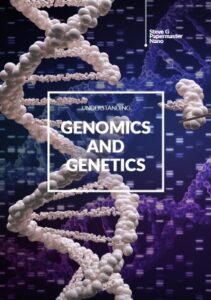Genomics, quite simply, is the study of an organism’s genetic material (or genome), which is present in all living things. A human being’s genome, for example, has what is called deoxyribonucleic acid – DNA – that contains the set of instructions required to develop and direct human activities. At a deeper level, DNA consists of four chemical units whose composition and pairing help uniquely define a living organism.
A complete set of DNA is what makes up a genome, and for humans, there are approximately three billion DNA base pairs that are present in every single cell of the body.
For scientists, researchers and stakeholders such as Steve G Papermaster, Nano chairman and CEO, the journey of life as told through genomics is both fascinating and insightful for future advancement. As this community knows, continuous research into genomics is helping to uncover effective avenues for nanotechnology to make an impact on human health care.
Advancing Genomics
In the understanding of genomics it is essential to differentiate it from genetics, which is another term that comes up frequently in health care. Genetics focuses on genes and their impact on inheritance – or how various traits are passed down between generations. As such, this study considers a gene as a unit of DNA that has the instructions for creating a specific protein or set of proteins. In the health care field, genetics then seeks to understand the impact of changes in a gene in relation to health conditions.
On the other hand, genomics focuses more on all the DNA in an organism and how the different genes are expressed and relate to each other. This focus has led to the development of sequencing technology, which allows for ‘reading’ an organism’s whole genome to better understand it. Genome sequencing ends up generating a huge amount of data, close to 200 gigabytes, that is useful to a multidisciplinary healthcare team.
Why Is Genomics Important?
Genomics, and particularly, genome sequencing, has helped the medical science community better understand human ailments. Through the data generated, the community is better able to study the different genetic factors that play a role in complex diseases and come up with improved solutions.
The development of inhalable nanoparticles, for example, has been made possible through the extensive work done in genomics, so that treatment such as insulin can be inhaled directly into the lungs when delivered through nanoparticles. The effect is that insulin degradation is reduced, allowing direct delivery of this important drug to the bloodstream.


